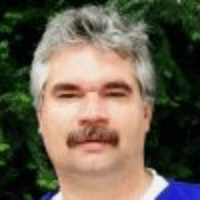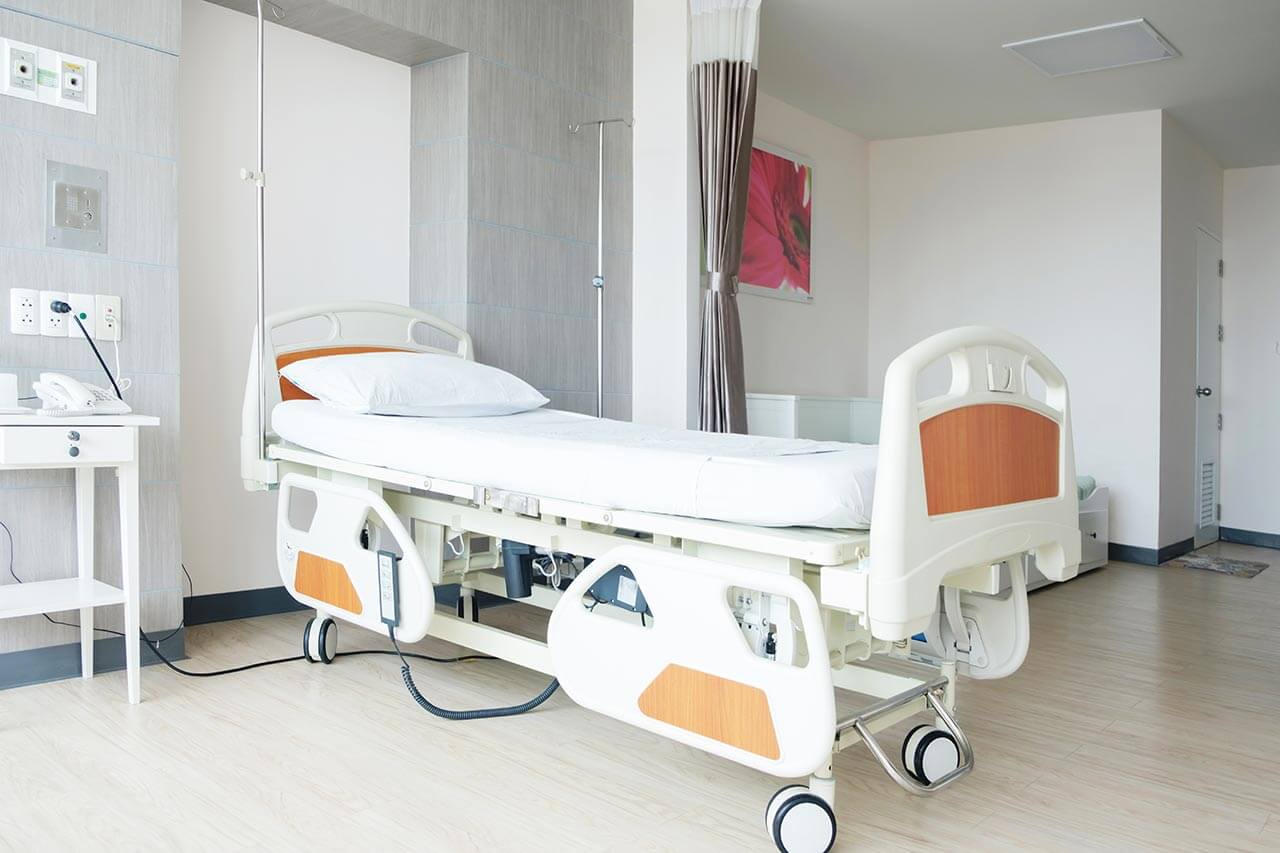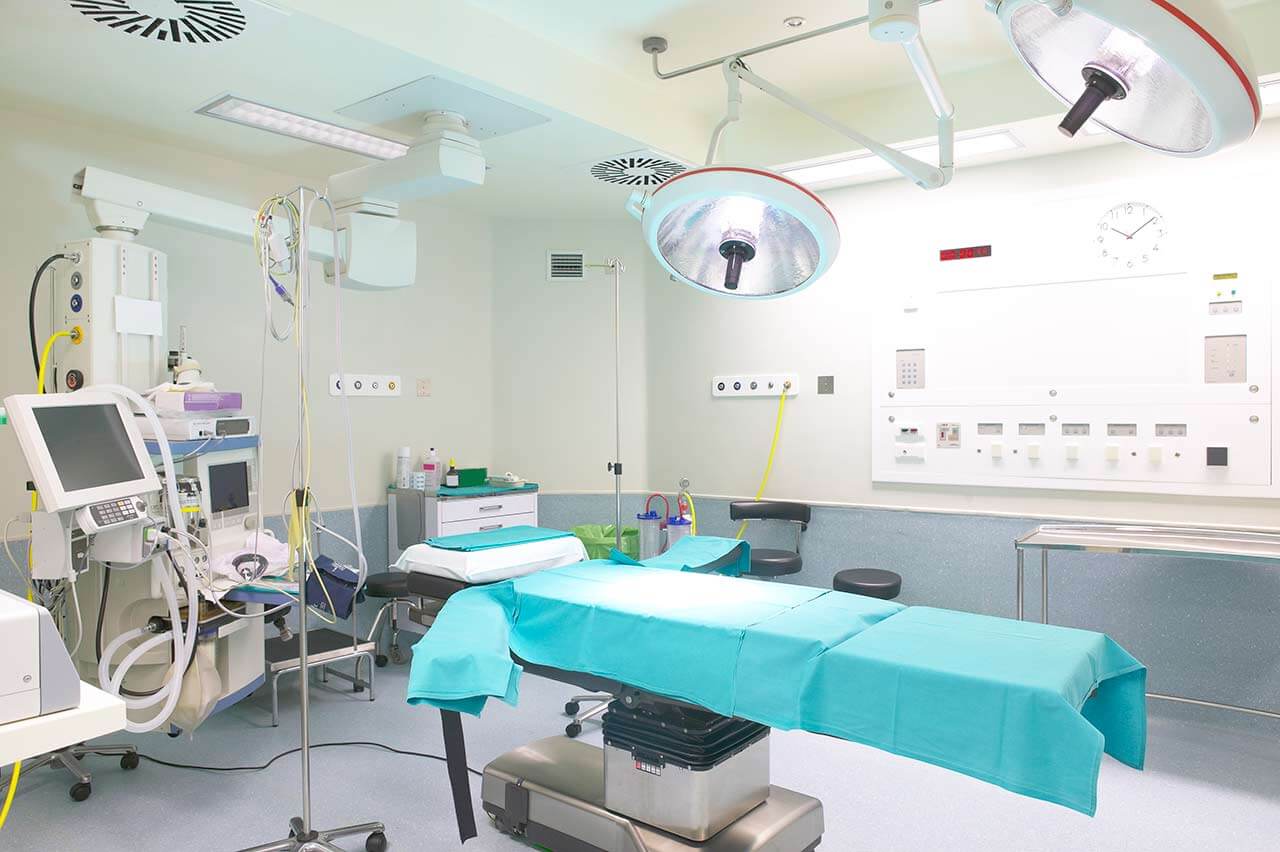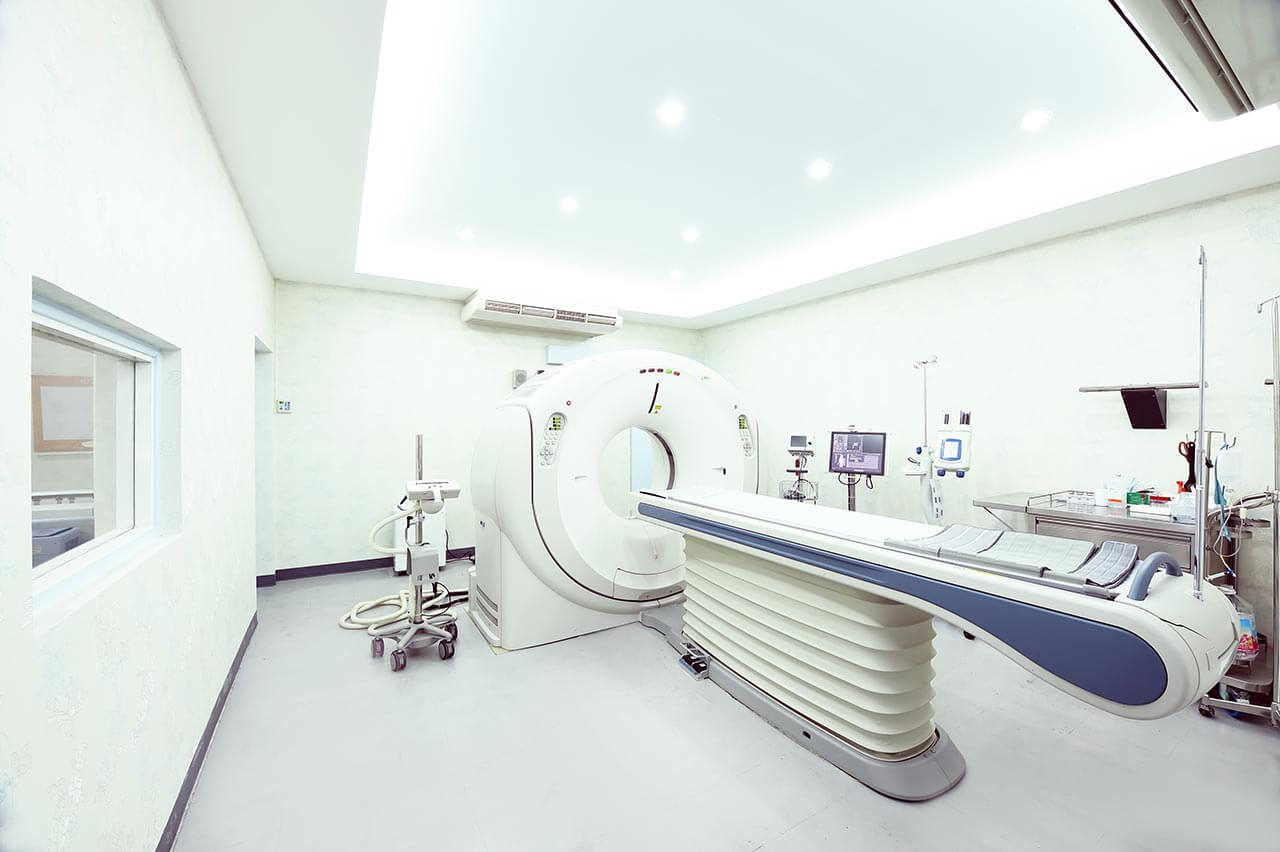
The program includes:
- Initial presentation in the clinic
- clinical history taking
- physical examination
- neurological examination
- laboratory tests:
- complete blood count
- general urine analysis
- biochemical analysis of blood
- TSH-basal, fT3, fT4
- tumor markers
- indicators of blood coagulation
- CT/MRI of head
- full course of chemotherapy
- full course of radiation therapy
- control MRI
- cost of essential medicines and materials
- nursing services
- consultations of leading experts
- explanation of individual treatment plan
How program is carried out
During the first visit, the doctor will conduct a clinical examination and go through the results of previous laboratory tests and instrumental examinations. After that, you will undergo an additional examination, including complete blood count, laboratory assessment of liver and kidney function. Based on the received results, the physician will elaborate the chemotherapy regimen, conduct radiotherapy planning with the help of CT or MRI, make the permanent tattoo marks on the skin and conduct CT simulation in order to assess the accuracy of the rays and the radiation dose. If necessary, related medical specialists will be involved in the elaboration of a treatment regimen (tumor board).
Chemotherapy and radiation therapy are carried out as the day hospital procedure, without mandatory admission to the hospital. At each visit, the physician will assess your general condition and the marks on the skin. After that, you will be placed in a shielded radiation therapy room, on a special table.
Each radiation therapy session lasts less than half an hour (including preparation). All this time, doctors and nurses are monitoring your condition, you can communicate with them through a loudspeaker. The procedure is completely painless. Depending on the planned course of treatment, you will visit the hospital from 1 to 3-5 times a week.
During the chemotherapy session, after the placement of a venous catheter, you will stay in a comfortable ward. An infusion system will be connected to the catheter, through which the required drug or a drug combination will be administered. All drugs are administered by intravenous drip, slowly, so the total duration of the infusion can be up to several hours. All this time, doctors and nurses will monitor your health condition closely.
After the completion of the chemotherapy and radiation therapy course, you will undergo control examinations aimed at assessing your condition and efficacy of treatment. After that you will receive the medical report with detailed recommendations regarding further follow-up and treatment. In the future, you will be able to have a distant consultation with your attending physician and schedule the next course of treatment, if necessary.
Required documents
- Medical records
- MRI/CT scan (not older than 3 months)
- Biopsy results (if available)
Service
You may also book:
 BookingHealth Price from:
BookingHealth Price from:
About the department
The Department of Radiation Oncology at the St. Antonius Hospital Eschweiler specializes in various types of radiation therapy according to the standards of modern medicine. The primary focus of the clinical activities of the department's doctors is the treatment of cancer patients. In addition, the field of competence of the specialists working in the medical facility includes radiation therapy for benign diseases of the joints and soft tissues, for example, small and large joint osteoarthritis, heel spur, tennis elbow. The Chief Physician of the department is Dr. med. Uwe Maurer.
The department began its work in 2006 and today can be proud of excellent treatment outcomes. The patients are treated both on an inpatient and outpatient basis. In most cases, patients tolerate radiation therapy well, so hospitalization is not required. The patients' health is in the safe hands of a highly professional team of experienced doctors who individually select the optimal type of therapy, the radiation dose and the duration of the course of treatment. The team of the department's radiation therapists works closely with the specialists from related medical fields, which guarantees an integrated approach and an effective treatment outcome.
The department has two advanced Elekta linear accelerators. They can be used not only for 3D conformal radiation therapy, but also intensity-modulated radiation therapy and image-guided radiation therapy. The medical facility has also successfully performed high dose-rate brachytherapy using the MicroSelectron device for the sequential administration of a radioactive source (Iridium-192). Each course of radiation therapy is carefully planned using an innovative BigBore CT scanner by Philips. A distinctive feature of this CT scanner is the large aperture diameter – 85 cm. This allows examining obese and claustrophobic patients.
The department's doctors successfully carry out the very latest types of radiation therapy, which have demonstrated their effectiveness in clinical trials and practical medicine. Interstitial radiation therapy (brachytherapy) is one of such forms of radiation. The essence of brachytherapy is the implantation of radioactive sources in the immediate vicinity of the tumor, into the affected organ, which ensures the delivery of radioactive radiation directly into the pathological focus. In terms of effectiveness, brachytherapy is comparable to the surgical treatment techniques, however, the process of preparation, treatment and rehabilitation takes much less time. In addition, unlike external radiation, in which radioactive rays pass through the healthy tissues, brachytherapy minimizes the negative effects of radiation on the human body. The department carries out low dose-rate and high dose-rate brachytherapy. Like any other type of radiation therapy, brachytherapy begins with planning, which determines the size, exact location and other characteristics of the tumor. The very procedure of implanting a radioactive source takes about an hour and is performed under anesthesia. The therapeutic manipulation is often performed on an outpatient basis. Within 2-3 days, most patients return to their daily life. Based on the diagnosis and clinical indications of the patient, the doctor chooses the radioactive source and the duration of the course of treatment on an individual basis. After completing the course of brachytherapy, the patient has to undergo a follow-up diagnostic examination to assess the treatment outcomes.
The department's range of services is complemented by the treatment of oncopathologies of various localizations using modern radiation techniques such as 3D conformal radiation therapy, intensity-modulated radiation therapy (IMRT), image-guided radiation therapy (IGRT) and volumetric modulated arc therapy (VMAT). 3D conformal radiation therapy involves external irradiation based on the determination of the three-dimensional volume of the tumor and the anatomy of the adjacent vital organs. This technique can be used to treat malignant tumors. In most cases, it is indicated for the patients with brain tumors, prostate, stomach and breast cancers. The main advantages of the method are high accuracy and efficiency. 3D conformal radiation therapy is a sparing treatment and can be repeated in the event of tumor metastasis or local recurrence. Intensity-modulated radiation therapy (IMRT) allows planning the amount of radiation of any size and shape, as well as controlling the radiation intensity during the session. This approach makes it possible to minimize the side effects of radiation therapy, but at the same time effectively destroy cancer cells. Volumetric modulated arc therapy (VMAT) is an advanced form of intensity-modulated radiation. During the procedure, the emitting head of the device rotates around the patient, which helps to shorten the duration of the irradiation session – it takes only 2 minutes instead of the usual 10-20 minutes. Image-guided radiation therapy (IGRT) takes images of the target area at short intervals directly during the radiation therapy session, which ensures flawless precision of the radiation exposure. The IGRT technique is used to treat tumors located in movable organs and areas of the body (for example, lungs, liver, prostate), as well as tumors located near the vital organs. In most cases, image-guided radiation therapy is combined with other types of radiation, including those listed above.
The department specializes in the following types of radiation therapy:
- 3D conformal radiation therapy (3D-CRT)
- Intensity-modulated radiation therapy (IMRT)
- Volumetric modulated arc therapy (VMAT)
- Image-guided radiation therapy (IGRT)
- Radiation therapy for the treatment of benign joint and soft tissue diseases
- Low dose-rate interstitial brachytherapy (radioactive seed implantation)
- High dose-rate brachytherapy with afterloading technique using MicroSelectron
- Other treatments
Photo of the doctor: (c) Med 360°
About hospital
According to the prestigious Focus magazine, the St. Antonius Hospital Eschweiler ranks among the top medical facilities in North Rhine-Westphalia!
The hospital is a modern medical complex with 13 specialized departments. The hospital has more than 165 years of history, so it has long won an excellent reputation not only in Germany, but also in the European medical arena. In addition, the medical facility has the status of the Academic Hospital of the RWTH Aachen University, thanks to which it can offer patients the very latest and unique medical advances. The highly qualified medical staff of the hospital, consisting of more than 1,300 employees, is focused on high-quality medical services with due consideration of the personal needs and wishes of patients
The medical complex has 443 beds. More than 15,000 inpatients undergo diagnostics and treatment on an inpatient basis, while about 25,000 patients receive ambulatory medical care. The specialists of the hospital often provide diagnostic services and treatment to the patients from foreign countries.
The main areas of clinical practice of the medical facility include oncology, hematology, general and abdominal surgery, plastic surgery, hand surgery, vascular surgery, internal medicine, gynecology, urology and radiation oncology. Each area is represented by an experienced team of doctors and specially trained nursing staff, whose task is to provide the accurate diagnostics and the most effective treatment. The work of the medical staff is based on the use of modern technical resources, as well as classic and innovative treatment methods. The doctors from different medical specialties cooperate closely with each other, so the slightest details and characteristics of the patient's body are taken into account when planning and providing treatment. In addition, the medical staff is always open to personal communication with the patients, strives for their moral support on their way to recovery and surrounds them with care.
The outstanding achievements of the hospital and high treatment success rates are confirmed by the quality certificates of the German Cancer Society, the German Cardiac Society, the German Society of Vascular Surgery, the German Society of Hematology and Medical Oncology and the German Trauma Society. In addition, according to the famous Focus magazine, the hospital is recognized as one of the best medical centers in Germany specializing in the treatment of breast cancer, prostate cancer and cardiovascular diseases.
Photo: (с) depositphotos
Accommodation in hospital
Patients rooms
The patients of the St. Antonius Hospital Eschweiler live in cozy and light rooms. All the patient rooms are well equipped to make the patient feel as comfortable as possible throughout the entire period of hospital stay. The patient room includes an automatically adjustable bed, a bedside table, a wardrobe, a TV and a telephone. Each patient room has an ensuite bathroom with shower and toilet. Some patient rooms have specially designed bathrooms for disabled people. The patient rooms also have Wi-Fi.
If desired, the patient with his accompanying person can live in the enhanced comfort room. These patient rooms are additionally equipped with upholstered furniture, a mini fridge and a safe for storing valuables.
Meals and Menus
The patient and his accompanying person are offered tasty and healthy three meals a day: breakfast, lunch and dinner. Breakfast and dinner are served buffet style, while for lunch there is a choice of three set menus. If for some reason you do not eat all the foods, you will be offered an individual menu.
The hospital also has a cozy cafe with a large choice of salads, main courses, pizza, cakes and ice cream. Here you can enjoy aromatic coffee, delicious tea or soft drinks.
Further details
Standard rooms include:
Religion
The religious services are available upon request.
Accompanying person
During the inpatient program, the accompanying person can live with the patient in a patient room or a hotel of his choice. Our managers will help you choose the most suitable option.
Hotel
During the outpatient program, the patient can stay at the hotel of his choice. Our managers will help you choose the most suitable option.




